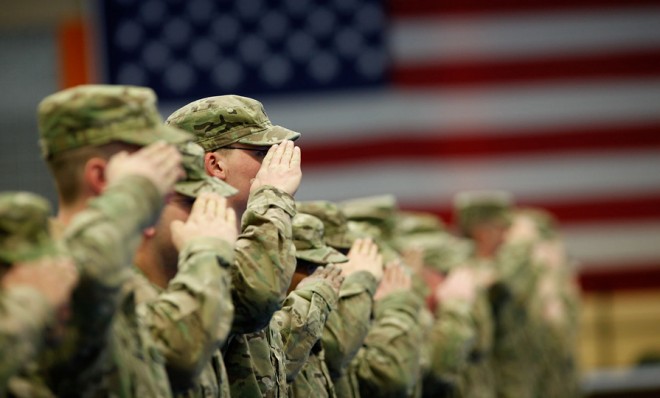What's behind the U.S. military's climbing suicide rate?
A record 350 active-duty troops took their own lives in 2012

A free daily email with the biggest news stories of the day – and the best features from TheWeek.com
You are now subscribed
Your newsletter sign-up was successful
In 2012, the U.S. military set a grim record: 350 suicides among active-duty troops. That's more than the number who died in combat in Afghanistan and more than double the number of reported suicides from a decade ago, according to Pentagon statistics.
What's causing this spike in suicides?
Exposure to combat doesn't explain all of it. While post-traumatic stress disorder (PTSD) and traumatic brain injuries both may contribute to suicidal behavior, the Pentagon data shows that half of those who committed suicide were never deployed to Iraq or Afghanistan and 80 percent of them never even saw combat.
The Week
Escape your echo chamber. Get the facts behind the news, plus analysis from multiple perspectives.

Sign up for The Week's Free Newsletters
From our morning news briefing to a weekly Good News Newsletter, get the best of The Week delivered directly to your inbox.
From our morning news briefing to a weekly Good News Newsletter, get the best of The Week delivered directly to your inbox.
A paper published in the journal JAMA Psychiatry suggests an increase in concussions might play a role in the increase in suicides. Controlling for factors like depression and PTSD, researchers found that service members who suffered multiple concussions were more prone to suicidal thoughts than those who had not.
Scientists aren't sure exactly how concussions might contribute to suicide risk, but a recent study on retired NFL players showed that players who had suffered concussions during their careers were also more likely to show depressive symptoms than those who had not experienced concussions.
Some of those who committed suicide may also have been affected by their specific life situations or status in the military. For example, The New York Times reports that 90 percent of suicides involved enlisted personnel, not officers, and that three out of four did not attend college, suggesting that many of the same factors that are markers for increased risk of civilian suicide — like instability in one's personal life — could also be contributing to the risk of suicide in the military.
Another risk factor might be the pace of deployment. Dr. Elspeth Ritchie, formerly the Army's top psychiatrist, studied the rise in suicides over the last 10 years and found that units that deployed rapidly were the ones that reported the most suicides.
A free daily email with the biggest news stories of the day – and the best features from TheWeek.com
"These sergeants will tell me, 'We're moving so fast, I don't have time, I don't know my men and women,'" Ritchie told PBS. "The sergeants who in the past took care of the new kids are so busy preparing for the next (deployment), there just isn't the same sense of cohesion that we used to have."
While the Department of Defense already has 900 suicide-prevention programs, troops who are having depressive or suicidal thoughts often don't seek treatment. That's why the Pentagon plans to release a suicide-prevention policy later this year requiring "leaders to foster a command climate that encourages Department of Defense personnel to seek help."
Keith Wagstaff is a staff writer at TheWeek.com covering politics and current events. He has previously written for such publications as TIME, Details, VICE, and the Village Voice.


